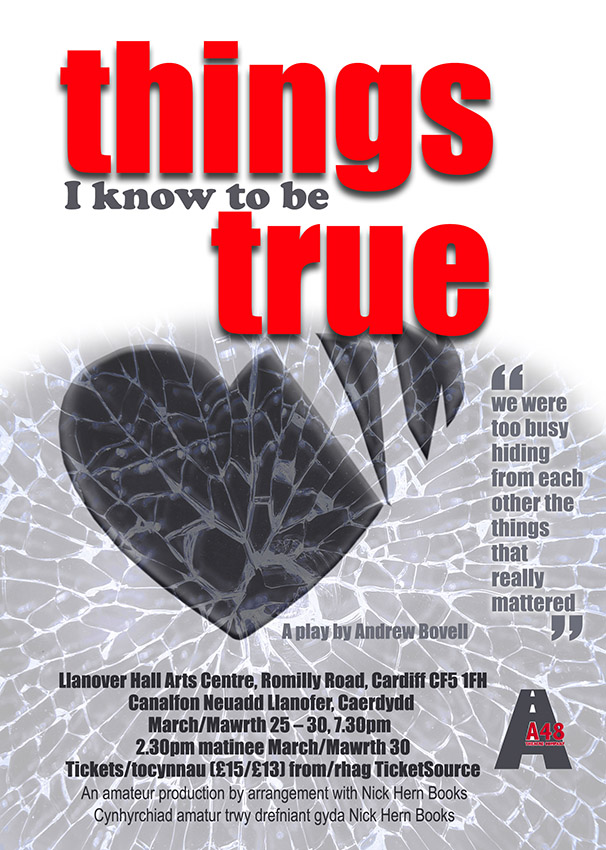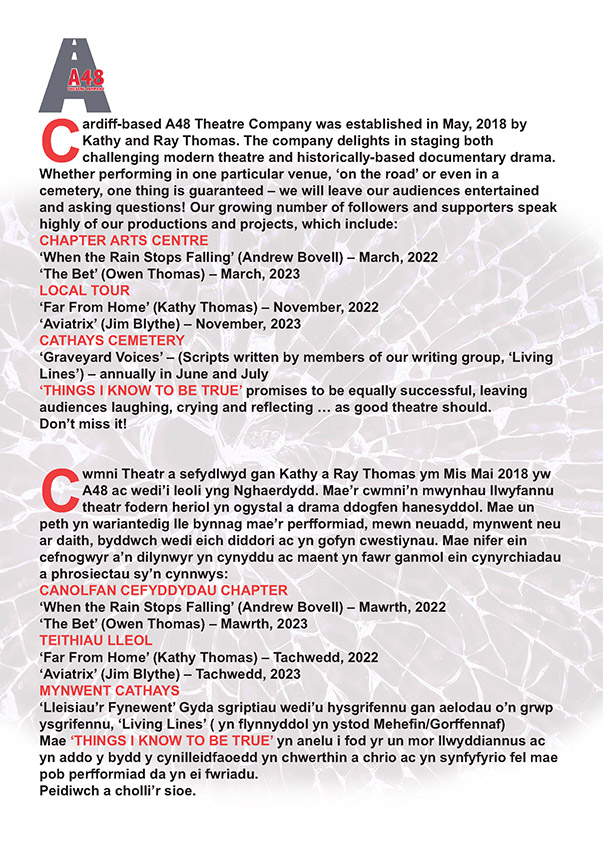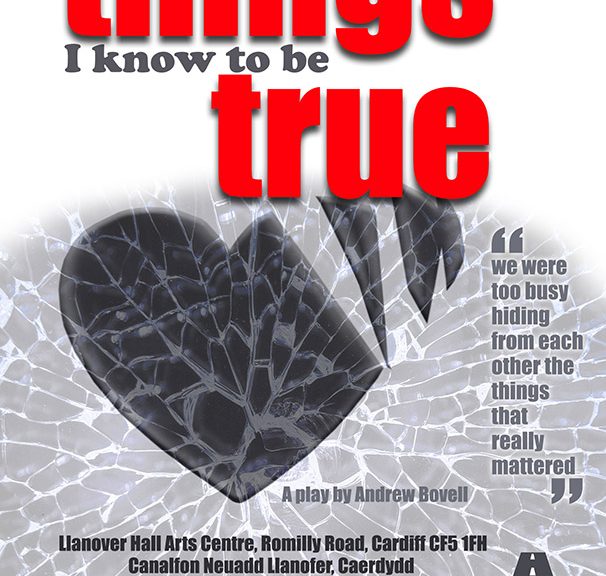
Andrew Bovell is a world renowned Australian playwright with whose work A48 Theatre Company founder Ray Thomas became familiar when he toured a collaborative Welsh and Australian production of “Do Not Go Gentle”, starting at Chapter Arts Centre and finishing at The Drill Hall Theatre in New South Wales in 2017.
After the success of “When The Rain Stops Falling” at Chapter in 2022, A48 Theatre Company chose “Things I Know To Be True”, another of Andrew Bovell’s plays, for the current production which runs from March 25-30th at Llanover hall arts centre, Romilly Road, Cardiff .
The play is bookended by night-time scenes at the Price family home when the ringing living-room phone wakes up the household. There is speculation among the younger members of the family before father Bob lifts the receiver and answers ‘hello’. Before we know the significance of the call which comes at the close, action then proceeds to the front of the stage where the youngest, Rosie, gives the first monologue.
If you were thinking that the play’s title suggested a catalogue of didactic rants according to one or other characters, it wasn’t going to be this one. Rosie is telling us how she went travelling to discover love and life. Thinking she had got a result, we are shocked to hear the outcome of her encounter with Spanish heart-throb Immanuel in Berlin. When the scene cuts to her arrival at the family home to find solace, we are then diverted from the expectation she will receive a sympathetic hearing as her family appear and pepper us with quick-fire banter relating to past behaviours, some fond memories, others more resentful (e.g “I spend good cash on buying you a coffee-machine, Dad, but you never use it!”) that all but side-lines poor Rosie whose tale of loss and romantic disappointment is ignored.
The play explores the tensions created in the family relationships as each of Fran and Bob’s offspring reveal the singular deep and personal crises in their young adult lives. Bob is a prematurely retired car-worker while Fran still works as a hospital nurse, both have always been scrupulous about raising their children well and morally, to be able to leave the nest one day to create careers and family life of their own. The drama lies in how the revelations put a strain on the prospect of a happy dotage for the parents as their children reach adulthood. Such revelations force Fran to admit she has put small portions of her earnings aside in case she felt she had to leave Bob, to his consternation, while Bob has retired to grow his roses but finds it difficult to spent all his hours usefully satisfying as he had hoped.
The set is simple, tables and chairs behind the house-frame viewed from the garden area with a display of Bob’s beloved roses. Much is made of the tree beyond the fourth wall to illustrate character. Against it Fran beats her head out of frustration; Mark climbs it to observe the life around him, detached as he is from any sense of ease with norms of family and society. His brother Ben skits into view and out again to establish himself as a character evading the focus of others as he masquerades behind a facade of being as well-heeled as the privileged crowd he is trying to impress at work. Status and the value of wealth are hereby explored to a satisfying extent. Financial settlement at career end often results in a paltry amount considering the years of service someone like Fran has given.
When Ben confesses to mounting debt due to false accounting practices to fund his lifestyle, one parent is predictably outraged, the other unpredictably pragmatic. Ben’s brother Mark has decided he identifies as a woman and has booked gender-change surgery. Their sister Pip, a successful corporate career woman, is giving up the intimate care of her children in favour of leaving her husband for another man (also married). All these crises of the young adults throw the stability and hopeful expectations of their unprepared conventional parents into disarray.
The outcome is not surprising but still comes as a shock. Rosie’s second monologue is an inspired piece. Bovell writes it as if Rosie is imagining the thoughts in the overburdened mind of her mother as she leaves her hospital shift in the early morning hours for the last time, not for the first time her absorption in the case of a patient she has cared for being pertinent to her fate. The finale concludes with a wonderful silent episode where the children are dressing their father when all had been in nightwear moments earlier. Mark is now Mia and convincingly dressed and styled as such.
If the intensity of family dynamics is appropriately tense, the script is leavened with humour for some relief. The actors were admirably up to the challenges of some long speeches and fast repartee, if in monologue their voices dropped on occasion, making it hard to hear. A satisfying if unsettling drama, “Things I Know To Be True” is well produced in set and action, and recommended viewing if you can get tickets via a48theatrecompany.com


